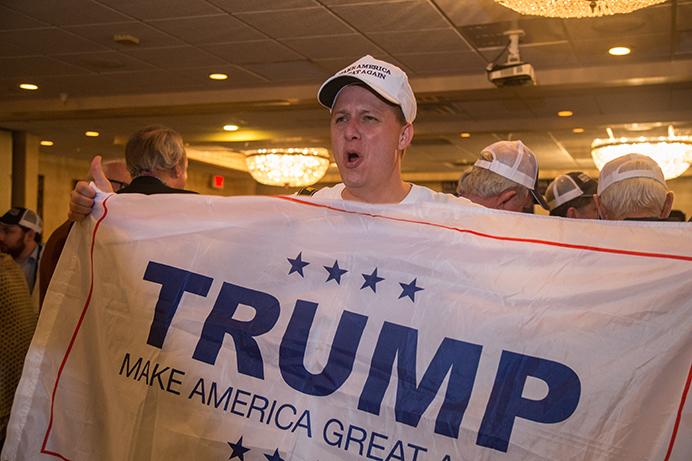ISABELLA ROSARIO
Since Nov. 8, 2016, I’ve questioned a lot of things. What it means to be an American. What it means to be queer, a woman, a person of color, and an American. What it means to hate. What it means to condemn hatred but not care enough to stop it. What it means to accept others’ chains in exchange for yours being broken. And when you’re the one left imprisoned, how easy it is to assume that the shackles of those who are free were any less oppressive than your own.
In recent weeks, numerous stories have come out about people who voted for Donald Trump and now regret their decision. Grieving father Kraig Moss lost his son to heroin three years ago; he told CNN he believed Trump’s commitment to end the opioid epidemic until the now-failed American Health Care Act proposed cutting addiction services.
“I feel betrayed,” he said. Stroke survivor Linda Preast was shocked to learn Trump’s budget proposal would reduce funding to Meals on Wheels, a program she has relied on for years. “I was under the influence he was going to help us,” she told CBS. Most recently, the Huffington Post ran a story about Helen Beristain, a Trump voter whose husband is now being deported. She was under the impression “good people” like him would get to stay.
With a dismal approval rating of 37 percent, it’s likely many more Trump voters have become disenchanted with the president’s campaign promise to “Make America Great Again.”
The easy route is to say, “I told you so.” To brush these people off as “a basket of deplorables.” To perpetuate the dehumanizing dichotomy of “us vs. them.” And, especially for those of us who belong to marginalized communities (i.e., “special snowflakes”), to ask why we should feel sympathy for people who didn’t care about the human consequences of a Trump presidency until it affected them personally.
And this is what numerous op-eds have had to say about Trump voters, elitist think pieces with callous titles such as “No Sympathy for the Hillbilly.” Our nation is so divided that we fail to recognize each other’s humanity in exchange for our own, as if the two cannot coexist. This is the same mentality that got Trump elected president; not all who voted for him share his bigotry, but they certainly did not feel it was a compelling enough reason to withhold their support. The white working class voted for themselves — what many of us on the left fail to recognize is that the choice they made was one largely rooted in fear for their own communities, which have been devastated by factory-job loss and ravaged by the opioid epidemic that cost Moss his son.
Compassion and politics are not mutually exclusive. This was true on Nov. 8, when white, working-class Trump voters chose helping themselves over the well-being of Americans different from them. And it’s true today as some greatly suffer from their decision. We as Americans must treat each others’ struggles with compassion, even if we believe their vote did not reflect the same kindness toward us. Our nation will continue to be divided unless we make the conscious decision to have difficult conversations. To forgive. To see people not just as liberals and conservatives, but fully formed humans whose aspirations and fears matter just as much as ours.
As Audra Lorde once said, “I am not free while any woman is unfree, even when her shackles are very different from my own.”










